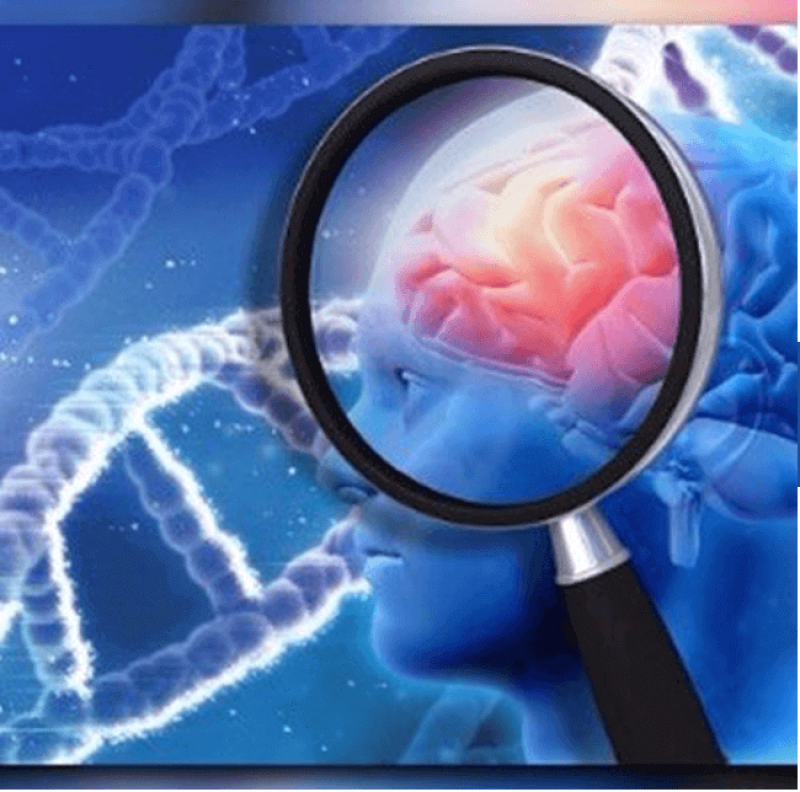“Today, when we don’t know what causes a disease, we say it’s likely epigenetic. With this point of view, we get things wrong sometimes, which leads to some misconceptions. In a sense, I think this epigenetic viewpoint is right, but we need much more evidence to get a defined picture.”
Howard Cedar researcher at Hebrew University on current state of epigenetics
Epigenetics Around the Web is a weekly roundup of the latest studies and news in the field of epigenetics presented by GLP sister site the Epigenetics Literacy Project. This week features an interview with the scientist who discovered methylation’s job and an epigenetics-based Alzheimer’s disease drug.
Alzheimer’s drug
In 2016, ORY-2001, the first epigenetics-based drug for any neurodegenerative disease, began and successfully completed a Phase 1 clinical trial in Spain. The drug is a highly selective molecule that targets a histone demethylating enzyme called LSD1 and inhibits its activity. In mouse studies, treated subjects had marked improvements in cognition. In 2017, according to the Alzheimer’s Drug Discovery Foundation, the drug will begin a Phase 2 clinical trial. The drug also is being investigated as a possible treatment for multiple sclerosis and is in the early stages of a clinical trial for acute myeloid leukemia.
Methylation Maestro
Howard CedarWriter Anna Azvolinsky over at The Scientist has a great profile of Howard Cedar, one of the scientists who is credited with discovering that DNA methylation represses transcription. The story follows Cedar from a physics major at MIT to his current post as a faculty member at Hebrew University in Jerusalem, Israel. His early work at the National Institutes of Health was on chromatin structure and how it interacts with RNA polymerase. In the late 1970s, Cedar teamed up with fellow professor Aharon Razin and the two began uncovering the how and why of methylation. Methylation is the process by which a methyl group (a small molecule) is added directly to the DNA and it has a really interesting story. It’s presence throughout the genome was well established since the 1940s but what it was doing wouldn’t be uncovered by Cedar three decades later. Even after it’s role in gene repression was uncovered, it would take another three decades for scientists to take a strong interest in the process’s role in human health. Today many of the epigenetic studies investigate changes in methylation patterns on specific genes or areas of the genome. Today, Cedar is doing some of that work too — his lab investigates the role of methylation in B cells. The Scientist lists his ‘Greatest Hits’:
- Demonstrated, with Richard Axel and Gary Felsenfeld, that chromatin can restrict transcription by globally blocking most of the genome while allowing access to specific genes
- Along with Aharon Razin, showed that methylated DNA is stably propagated to daughter cells following mitotic cell division, and outlined the mechanism by which methylation sites are maintained through cell division
- Was first to demonstrate that DNA methylation inhibits transcription and that undermethylated DNA is associated with actively transcribed genes
- Provided some of the first evidence for epigenetic reprogramming by proving that methylation patterns are erased in the early embryo
- Discovered the molecular rules involved in establishing DNA methylation patterns during development
Epigenetics and the Holocaust
One of the areas of epigenetics that has caught the attention of the public is the idea (supported by some evidence) that stress from horrific events, such as the Holocaust and the Dutch Hunger Winter, may induce heritable epigenetic changes. Allison Bernstein, a neuroscientist who studies epigenetics in the brain, wrote an excellent article about this for GLP here. Researcher Ivan Rektor is studying this question at the Central European Institute of Technology of Masaryk University in Brno, Czech Republic. On January 12, he explained the work ongoing in his lab in an interview with Radio Prague:
We are interested in the transfer of the consequences of the horrible experience to the second and third generation, i.e. to the offspring of Holocaust survivors. It has been well-known that the children of Holocaust survivors may suffer –and sometimes suffer – from “Holocaust survivor children’s syndrome”’. They are more sensitive to stress, can suffer from emotional misbalance, are more prone to post-traumatic stress disorders and so on. This is well-known, but what is not clear is whether this transfer to the second generation is a social/behavioural transfer or a biological, genetic, epigenetic transfer. We are studying this question.
You can listen to the whole interview and read the transcript here.
Nicholas Staropoli is the director of the Epigenetics Literacy Project. He has an M.A. in biology from DePaul University and a B.S. in biomedical sciences from Marist College. Follow him on Twitter @NickfrmBoston.































